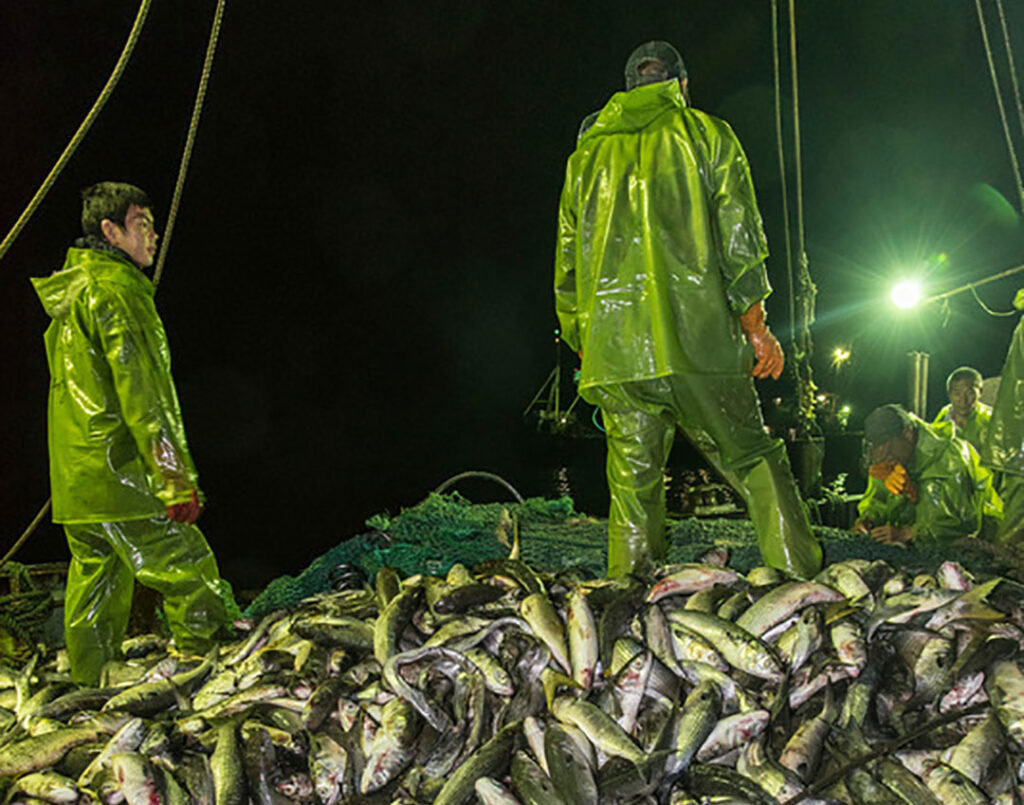ADF STAFF
Mauritanians are demanding justice after artisanal fishermen died when their boat was struck by a large Chinese trawler. The early September incident occurred in Atlantic waters off the port city of Nouadhibou.
Three of the six fishermen aboard the Mauritanian boat were killed and the captain of the Chinese vessel was detained, according to local news reports.
Days later, hundreds of local fishermen joined family members of the dead fishermen in calling for Mauritanian leaders to expel foreign trawlers — including those from China, Russia and Turkey — from Mauritanian waters and to provide better protection of artisanal fishermen and other sailors because deadly maritime incidents in the area are common. The wreck occurred in an area reserved for artisanal fishing.
Mohameden Obeidat, vice president of a traditional fishing group, accused the Chinese trawler of deliberately striking the Mauritanian boat, because the Chinese vessel had turned off its lights and Automated Identification System in the early morning darkness, local news outlet alakhbar.info reported.
Peter Hammarstedt, director of campaigns for Sea Shepherd Global, a nonprofit organization that works to eliminate illegal, unreported and unregulated (IUU) fishing, said such tactics are common among trawlers that want to avoid detection in protected waters.
“Fishing remains the most dangerous profession in the world, all the more so for artisanal small-scale fishers,” Hammarstedt told ADF in an email. “The prevalence of industrial trawlers in areas that also have large artisanal fishing communities has resulted in conflict, especially when trawlers enter protected areas that are reserved for non-industrial fishers.
“Local nets – often valued at many months of income – are routinely run over while pirogues and canoes have also been struck and sometimes sunk. I’ve met local fishers in Liberia who have told me their own experiences getting run over. People do drown.”
The Chinese vessel is owned by the Poly Hondok Co., according to a report by Nouadhibou Today. The Chinese company is also known as Poly Hondone, Poly Hondong and Fuzhou Hong Dong Yuan Yang.
In 2010, Mauritania struck a deal that gave access to its waters to Poly Hondok for 25 years. Local fishermen were so angry over the deal’s lack of transparency that they threw eggs at lawmakers who voted for it, Reuters reported at the time. Mauritania’s parliament is investigating the deal signed by then-President Mohammed Ould Abdel Aziz.
Poly Hondok’s operation is now China’s largest overseas fishery base, shipping 10,000 tons of seafood a year to Europe and the U.S. while also producing fishmeal, according to a report by Seafood Source.
For years, local fishermen have complained that foreign trawlers were seriously depleting the area’s fish populations.
In 2017, a Chinese conservationist interviewed the captain of a Chinese trawler off Nouadhibou and later wrote about the experience for Greenpeace.
“Sometimes we catch too much” fish, said the captain, who gave his name as Zheng. “The freezer[s] are full of fish and there is no space left for more, so we have to throw away tons of caught fish.”
Much of the discarded catch was dead.
“Wherever we sail, there will be no fish left in the ocean,” Zheng said.
China has signaled that it has no intention of abandoning Mauritanian waters. The nation recently loaned Mauritania $87 million to build a new fishing port just north of Nouadhibou.

